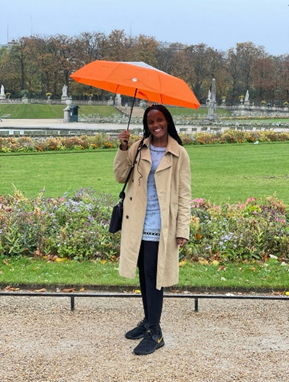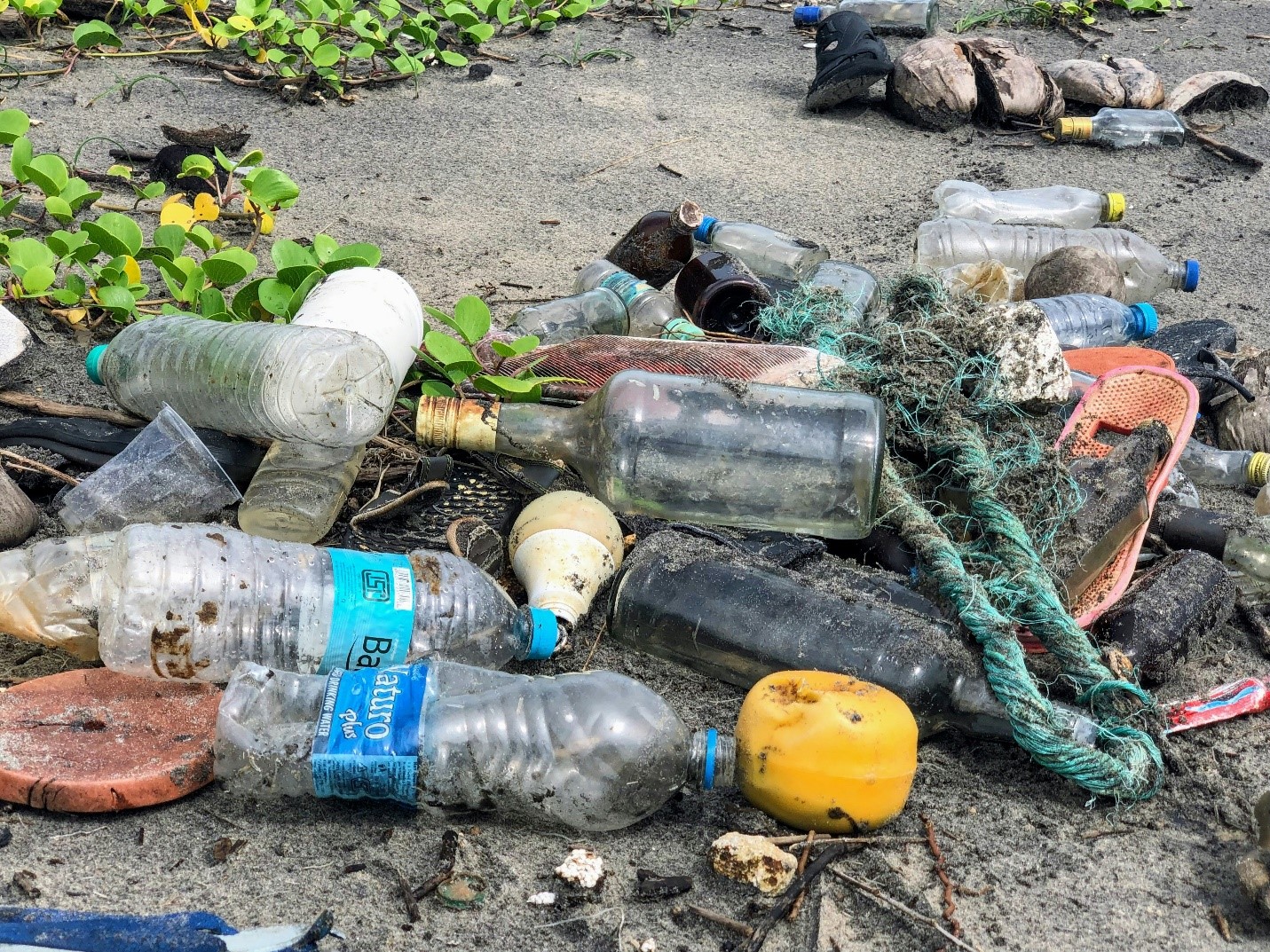Groundbreaking Workshop on AI and Technology-Facilitated Gender-Based Violence at AWiM24
Trending
Saturday May 31, 2025
Trending
Swedish born Greta Thunberg is an influential figure in environmental activism. Her influence transcends race and color. In 2018, her landmark event, tagged ‘School Strike for Climate’, sparked a global movement, inspiring environmental activists to take action against climate change by engaging with lawmakers. Held outside the Swedish parliament, Thunberg’s strike involved refusing to attend school for several days. As a renowned Swedish environmental activist, she has dedicated herself to addressing climate change, founding the ‘Fridays for Future’ movement in 2018. Her initiative has motivated many to support her cause. The event’s aftermath has also empowered young people around the world to champion climate change issues in various ways, including in Africa.
For instance, in 2019, Vanessa Nakate in Uganda was inspired by Thunberg to initiate her own climate justice advocacy, starting with a protest in Kampala’s streets.

Photo Credit: Vanessa Nakate via LinkedIn
Nakate was appointed a UNICEF Goodwill Ambassador in 2022. “As a young African woman, I have had to fight to be heard by the media and decision makers,” she said. “While I am fortunate to have a platform now, I intend to continue fighting for others. The children on the frontlines of the climate crisis, like those I just met in Turkana, Kenya, are the people for whom I will fight in my new role with UNICEF.” She remarked.
Advocating for Environmental Justice in Africa
Tackling the myriads of environmental challenges is often a herculean task. This has led young people to fully understand what it means to advocate for environmental justice. The inspiration drawn from Thunberg’s advocacy has culminated in a multitude of voices supporting climate justice.
Hassana Suleiman, in a conversation with African women in media (AwiM) an environmental and climate justice activist in Nigeria, said environmental justice means a future where the victims of climate crises, the less privileged people and majorly people who live in communities with little or no form of modern facilities get the support and assistance they require to require and also to prevent future climate disasters “It is a well-known fact these people are mostly the victims in climate situations caused by none other than the upper class who contribute to gas/carbon emissions and fumes from factories, vehicles and gadgets’, said Suleiman. According to her gaining environmental justice would mean a world where indigenous people get compensated properly for these damages and are provided with infrastructure such as greenery, proper drainage systems and climate resistant crops.

Photo Credit by John Cameron on Unsplash
During the African Climate Summit in 2023, protesters marched in the streets of Nairobi, Kenya, to demand action on climate change. As reported by Voice of America, “advocates also urged multinational corporations — those emitting carbon, such as oil companies and manufacturers — to avoid passing the tax burden to countries with less infrastructure.”
Twenty heads of state and country representatives attended the first Africa Climate Summit, which was held in Nairobi, Kenya, from Monday through Wednesday. The leaders demanded that major polluters pay low- and middle-income countries for the damage their emissions cause.
Women’s Fight Against Environmental Injustice in Africa
In recent years, Africa has witnessed the emergence of young female environmental activists who incorporate environmental activism into their creative pursuits, such as music, spoken word, and art. This is done to raise awareness about environmental issues. Inna Modja from Mali is another significant figure in Africa’s environmental discourse. According to the United Nations Convention to Combat Desertification (UNCCD), “With a strong following in Francophone West Africa and France, Inna is a leader among the young people committed to changing the narrative of the Sahel. Her music, energy, passion, and humanitarian works resonate with her audiences worldwide.” In 2019, she became a UNCCD Land Ambassador for the Sahel, focusing on desertification, and continued her activism on climate change and women’s rights. Notably, Modja uses music as a powerful tool to drive climate change awareness. She appeared in, and wrote the music for, the UNCCD’s 2019 Great Green Wall documentary.
Environmental Activism by Women and Climate Justice in Africa
As environmental sustainability issues sweep across African countries and other nations, there are considerable impacts that such activities have had.
“As a Nigerian Environmental and climate justice advocate, I would say female based environmental advocacy in Nigeria and Africa have tremendous impacts because we are not just coming online to make noise and post pictures,’ says Suleiman.
She explained that activists like her have taken the steps to shine the spotlight on people who need support and with the help of foreign aids and donations , they have been able to implement some manageable means of control in areas where there is damage or potential damage caused by climate change

Photo credit: Hassana Suleiman
These activists according to her educate individuals on climate change, environmental sustainability and mitigation. Suleiman and other female activits have also streamlined government policies concerning climate justice in mother tongues so that indigenous people who reside in rural areas can understand what they need to do and what’s at stake. ‘’People in rural communities now have complete understanding of the impact of climate change to their environment and have been educated on safety measures, and their rights to ask for interventions from the government”, she adds.
According to the UN, “Women and girls – including students, moms, indigenous women, and celebrities – have been leading global and national climate movements that have put a spotlight on the urgency of the climate crisis and the need for action for the sake of this and future generations.”
Challenges of Female led Climate and Environmental Activism in Africa
Women’s support is crucial for societal development, and they face even greater challenges in Africa’s climate crisis, where they struggle to raise functional families and communities.
As stated by the United Nations Development Programme (UNDP), “Like most other humanitarian and development challenges, the climate crisis perpetuates and magnifies structural inequalities, such as those between women and men.”
The UNDP explains explicitly that “Across the African continent, women bear an unequal burden when it comes to climate change impacts. Many women in the region rely primarily on climate-sensitive livelihoods, such as small-scale farming and manual labour. This makes them highly exposed to the impacts of extreme weather events such as recurring droughts and floods which damage crops and kill livestock upon which their livelihoods depend.”
In line with this, Suleiman asserts that there is poor coverage of climate situations and low data on climate injustice that people, especially the vulnerable demography of women, young girls and children face during any climate crises. Women, girls and children experience climate crises differently due to differences in biology and other natural factors. “During climate crises, most women, young girls and children may face life threatening conditions such as drowning, being swept away during flooding, lack of proper health care and no access to sexual and reproductive healthcare. There’s mostly an increase in gender and domestic based violence.’, says Suleiman
The majority of African countries, such as Nigeria, are developing countries, and funding is a significant issue in environmental advocacy. As an advocate who has seen climate challenges firsthand, Suleiman explains that “One of the major challenges environmental advocates face is lack of proper funding for projects that will help support environmental sustainability and the spread of awareness and education of farmers, women and young girls on mitigation policies. There’s also the issue of reach and ease of mobility to affected communities.”
Prospects for Environmental Activism in Africa
Women in Africa have taken up the baton to champion climate justice and environmental advocacy, marking a giant stride in raising awareness across the continent. Moreover, this effort is vital as climate crises are now widely regarded as a human rights issue. Suleiman reveals that “Organisations such as the African Advocates for Climate Justice, Education as a Vaccine, Climate Change Network, Society for Planet and Prosperity, have worked so hard to spread awareness on climate change, its causes, the effects, climate injustice and also to influence public opinion on recycling, green energy, carbon emissions that used to be very foreign terminologies. The goal is to ensure that everyone joins the movement to help sustain the earth.”
Also, UNDP disclosed that “As of August 2023, 40 out of 41 African countries that submitted updated NDCs have included gender considerations in them. Among these, 25 African countries included gender-responsive actions related to adaptation, while 12 included gender-responsive actions related to mitigation.”
For instance, Nigeria approved a National Action Plan on Gender and Climate Change in 2022 and updated its National Gender Policy. There have also been positive policy outcomes in countries like Malawi, Rwanda, Somalia, Kenya, Uganda, and others.
Ultimately, women’s immense contributions to environmental sustainability will continue with the domestication of such policies, initiation of more projects, international collaboration and adequate funding.
We’re not gonna spam. We’ll try at least.

Copyright 2020. African Women In Media
Copyright 2020. African Women In Media
Recent Comments